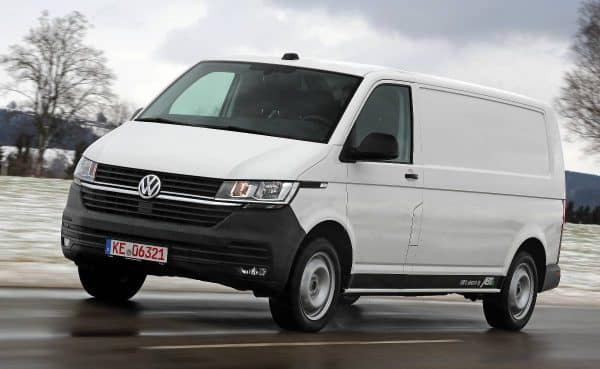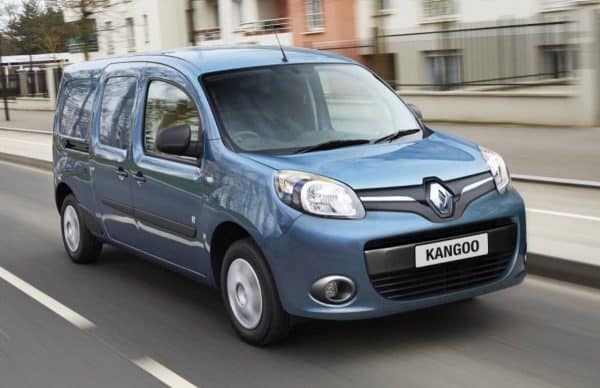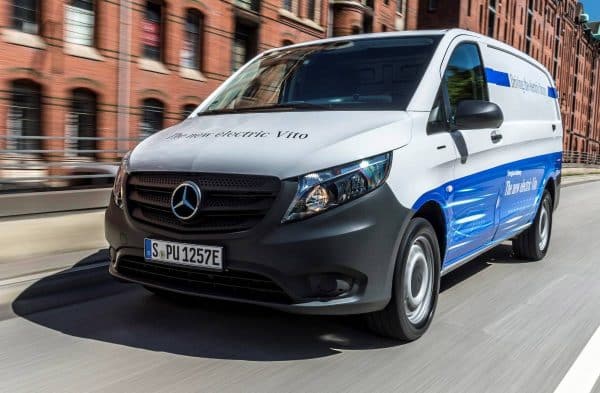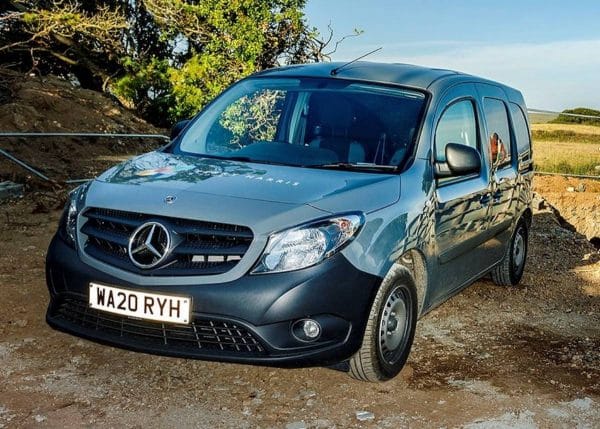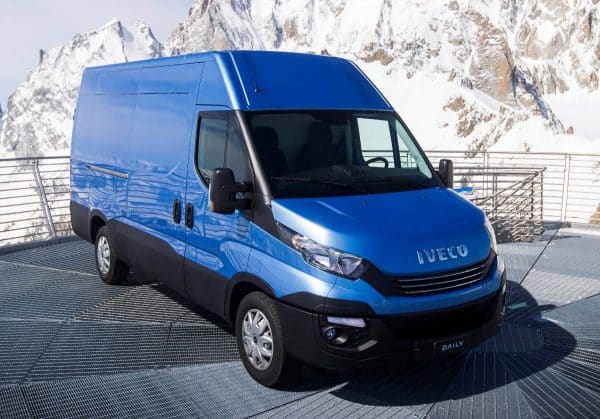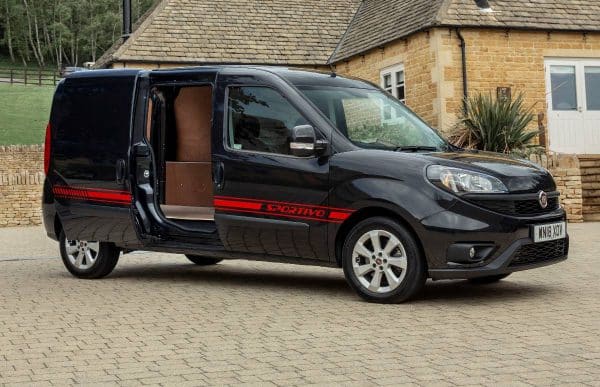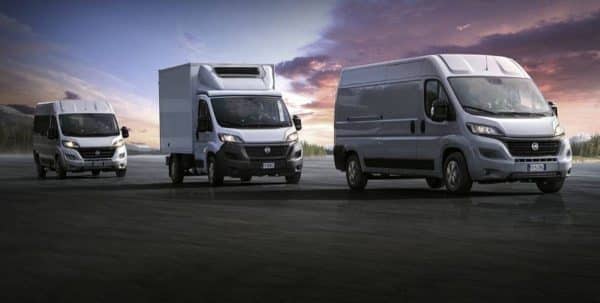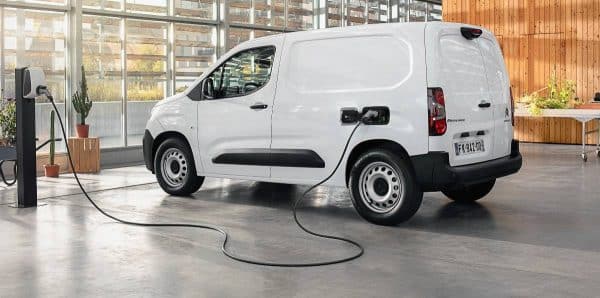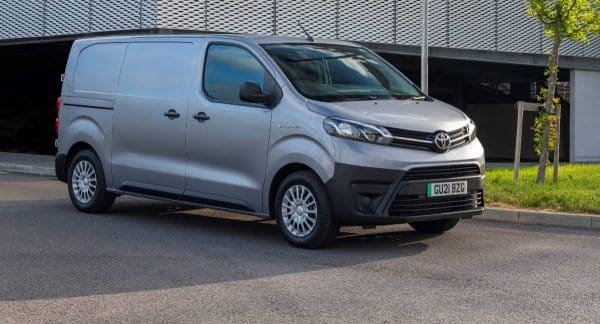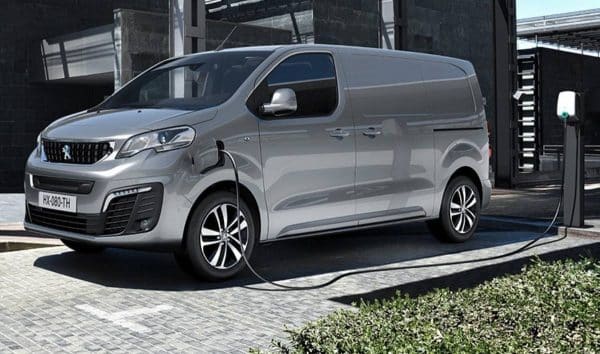While there’s a lot to like – and not like (for example, the price tag) – the Volkswagen ABT eTransporter really should be an all-round brilliant van. It does most things really well but other medium-sized electric vans offer more range and more equipment. If your business uses Transporters, then the eTransporter will meet your needs. If you can wait, Volkswagen is set to unveil a more impressive electric Transporter in 2022 to meet tightening environmental regulations in cities and countries.
The Renault Kangoo ZE was one of the first all-electric vans available and lots has changed since its launch in 2011. The latest version appeared in 2021 with better comfort and an improved battery range. This is Europe’s best-selling small electric van with the firm shifting more than 50,000 units. It’s still an interesting van for those who want to switch to battery power and it’s worth shortlisting. If you can wait, the Kangoo e-Tech with a range of 164 miles is scheduled to appear in 2022.
There’s a lot to like about the Mercedes eVito electric van, which is the first EV made by the manufacturer. It’s a quiet and refined offering with a decent payload – though the claimed range of 92 miles means driving needs to be judicious or you need to incorporate a rapid charging facility at some point in your working day.
The Mercedes Citan is based on the Renault Kangoo but is a much better van – the three-pointed star has polished the original offering and pushed up the quality to warrant the price tag. A new Citan is planned for launch in 2022 but the latest model still has a lot to recommend it.
The Iveco Daily has undergone a number of revamps in recent years and the latest one for 2021 has boosted driver comfort and added technology. The Daily looks essentially the same as when it was launched in 2016, though the interior is much improved, and the engines are cleaner. The Italian van maker has also added driver safety assistance systems.
The Fiat Doblo was launched in 2010 and a revamp in 2020 added a new 1.3-litre engine to the line-up. It’s a fairly cheap van to buy and a good runner but the range is starting to show its age now.
The Fiat e-Ducato is the firm’s first foray into electric van manufacturing, and they have done a decent job. Considering how competitive the segment is becoming, there’s a lot to recommend the e-Ducato with a driving range of either 113 or 230 miles. Perhaps the strongest consideration is the best-in-class payload the e-Ducato offers at 1,885 kg.
The Citroen e-Berlingo electric van will prove to be a top seller and sits alongside its siblings, the Peugeot e-Partner and the Vauxhall Combo-e to bring an impressive small van to the market. For most businesses, the e-Berlingo will have the edge when it comes to capabilities and performance when compared with the Combo-e and the e-Partner. There are a lot of similarities with the diesel-powered alternatives and with a better range, the e-Berlingo should really be road-tested by firms to ensure it meets their needs.
There’s no doubt that the Toyota Proace Electric is a very good battery-powered van, and it’s a good solution for anybody looking for a medium-sized van for everyday use. The driving range is 205 miles and firms should find that this is an accurate figure when driven around town. It’s also a good electric van to lease, though van owners should appreciate that the residual values for the Proace Electric are better than most others in the segment.
For those van drivers or businesses that have put off investing in an electric van because of payload and range concerns, then the solution could be the Peugeot e-Expert. Available in three body sizes and with a range of 211 miles means the e-Expert could help a business fulfil their everyday van needs with no compromise. This van is a great vehicle to drive, particularly around town.


